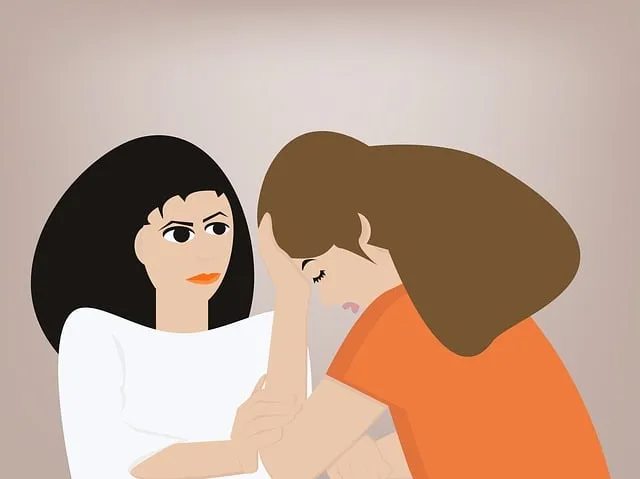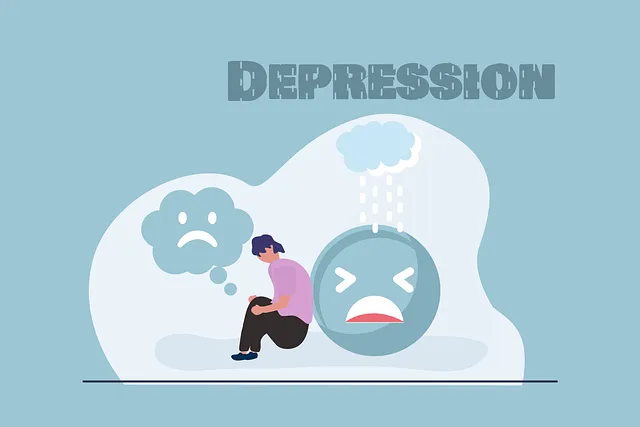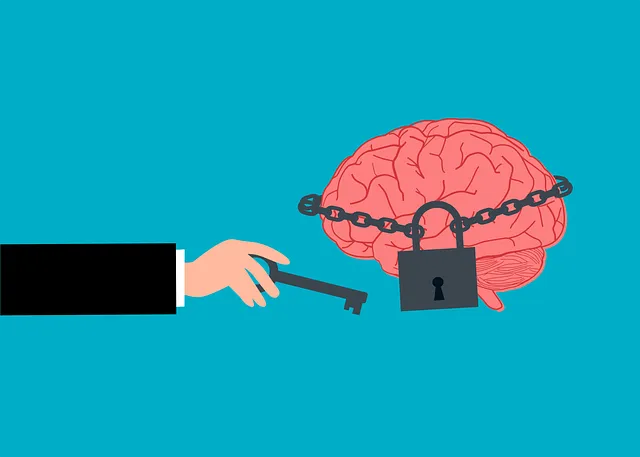Aurora Kaiser Permanente behavioral health providers prioritize breaking down mental health stigma through innovative strategies like open dialogue, success story sharing, and evidence-based practices. They educate the community through workshops, talks, and programs, dispel myths, and promote empathy. Initiatives like Mental Wellness Journaling Exercise Guidance empower individuals to take control of their mental well-being. By fostering collective understanding and compassion, they strive to create a supportive environment where mental illness is met with care, ultimately enhancing access to effective treatment for all.
Mental illness stigma remains a significant barrier to effective mental healthcare. This article explores comprehensive strategies to reduce stigma within the community and within institutions like Kaiser Permanente Aurora. We delve into the crucial roles played by behavioral health providers and media in fostering empathy and understanding. By examining successful initiatives, we aim to empower individuals and communities to create an environment where everyone can access support without fear of judgment, specifically focusing on the impact on behavioral health providers at Kaiser Permanente Aurora.
- Understanding Stigma: Its Impact on Mental Health Care at Kaiser Permanente Aurora
- Strategies for Educating Communities: Breaking Down Barriers with Empathy and Awareness
- The Role of Behavioral Health Providers in Reducing Stigma: Empowering Change from Within
- Encouraging Open Conversations: Media, Social Support, and Their Influence on Recovery Stories
Understanding Stigma: Its Impact on Mental Health Care at Kaiser Permanente Aurora

At Kaiser Permanente Aurora, understanding stigma is a key focus in mental health care. Stigma often prevents individuals from seeking help, leading to untreated mental illnesses and exacerbated symptoms. It creates a barrier between patients and behavioral health providers, fostering an environment of fear and shame. This negatively impacts not just the willingness to access services but also the effectiveness of treatment plans.
Reducing stigma involves educating both patients and the broader community about mental illness, promoting empathy, and advocating for equal treatment. Behavioral health providers at Kaiser Permanente Aurora employ various strategies like encouraging open conversations, sharing success stories, and integrating evidence-based practices such as stress reduction methods, positive thinking exercises, and conflict resolution techniques to counteract stigma. These efforts aim to create a supportive atmosphere that encourages individuals to prioritize their mental well-being without fear of judgment or discrimination.
Strategies for Educating Communities: Breaking Down Barriers with Empathy and Awareness

Aurora Kaiser Permanente behavioral health providers play a pivotal role in educating communities and reducing the stigma surrounding mental illness. Their strategies often involve fostering empathy and raising awareness to break down barriers. Through workshops, community talks, and educational programs, they help dispel myths and misconceptions about mental health conditions like depression prevention and anxiety relief. By emphasizing the importance of mental wellness, these providers encourage open conversations and create a supportive environment.
In their efforts, Aurora Kaiser Permanente incorporates evidence-based practices such as mindfulness meditation to demonstrate effective coping mechanisms. They aim to normalize discussions around mental health, ensuring folks feel comfortable seeking help without fear of judgment. This approach not only empowers individuals to take charge of their well-being but also fosters a collective understanding and compassion for those facing mental illness challenges.
The Role of Behavioral Health Providers in Reducing Stigma: Empowering Change from Within

Aurora Kaiser Permanente behavioral health providers play a pivotal role in reducing mental illness stigma by fostering understanding and empathy within their communities. These professionals are at the forefront of change, utilizing effective communication strategies to dispel myths and offer accurate information about various mental health conditions. By creating safe spaces for open dialogue, they encourage folks to share their experiences without fear of judgment.
Moreover, behavioral health providers can empower individuals to take charge of their mental wellness through initiatives like Mental Wellness Journaling Exercise Guidance. This practice not only helps clients develop self-awareness but also promotes resilience and coping mechanisms. Through these strategies, Aurora Kaiser Permanente aims to build a more supportive environment, where mental illness is met with compassion rather than stigma, paving the way for a healthier and more inclusive society.
Encouraging Open Conversations: Media, Social Support, and Their Influence on Recovery Stories

Encouraging open conversations about mental illness is a cornerstone of stigma reduction efforts, and various stakeholders play a crucial role in fostering these discussions. Media outlets have the power to shape public perception by sharing recovery stories from individuals who have successfully navigated their mental health challenges. Featuring diverse narratives from Aurora Kaiser Permanente behavioral health providers can humanize mental illness, dispelling stereotypes often perpetuated by the media’s sensationalized coverage. This approach paves the way for a more empathetic and supportive societal attitude towards those living with mental illnesses.
Social support networks are another vital component in breaking down stigma barriers. Encouraging friends, family, and community members to engage in conversations about mental health can reduce fear and promote understanding. By sharing resources and coping skills development opportunities, these social circles empower individuals to seek help and maintain their recovery journey. In the broader context of Cultural Sensitivity in Mental Healthcare Practice, open dialogues facilitate better access to services for underrepresented populations, ensuring that everyone has an equal chance at healing and thriving.
Efforts to reduce mental illness stigma are imperative for fostering inclusive communities. By implementing strategies that educate and empathize, organizations like Kaiser Permanente Aurora can significantly impact mental healthcare access. Behavioral health providers play a pivotal role in challenging internalized stigmas and promoting understanding. Encouraging open conversations through media and social support further strengthens the movement, ultimately revolutionizing how society perceives and supports individuals with mental health challenges, especially among behavioral health providers at Kaiser Permanente Aurora.






